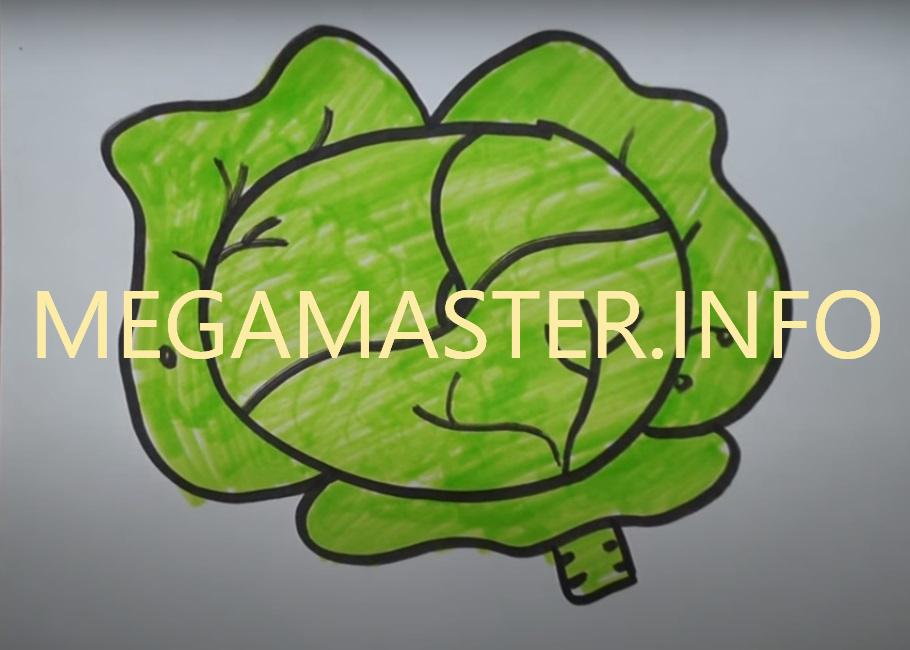To draw the original cabbage, you will need watercolor paper and pencils, eraser and paints. As a visual exhibit you can take white cabbage. Given the peculiarity of watercolor pencils, it is necessary to draw on lightly moisturized paper.
To begin with, draw a head with a small slope. Therefore, the thickest streak of cabbage leaf draw with a small bend and at an angle.
On the left and right side of the main vein there will be a few more cabbage leaves. According to the outlines, the first sketch resembles a head with a hat of a hero. All the outlines of the cap have uneven and wavy lines, and there is also asymmetry. Further, the drawing continues with the sketching of structural veins of white cabbage and small veins of each leaf.
After that, it seems that on each sheet of cabbage is drawn a tree without leaves, with thin branches growing up.
For accurate and realistic transmission, you should carefully examine the vegetable and understand the intricacies of its structural elements. Now, the finished sketch should be filled with paints. To get the first idea of shadows and light, you need to use weak green tones, applying a higher water content than the paint itself.
During the first sketches of colors should take into account the direction of shadows and reflections. Around each vein should leave white areas. For other zones, yellow-green and heat-ochre tones of paints are used. The transfer of natural light green sheets is obtained by more water on the brush. The smears are short and wide.
The effect of shadows and light is used to emphasize the folds of sheets. The main large shadow under the cochaon itself is drawn with a gray-blue hue with a wide brush. Detailed drawing will require more saturated paint and a fine brush.
The base of the head is light, and the edges of the leaves are dark, thanks to dark gray-green colors. The brush should be as dry as possible. To smooth out the contrasts, you can adjust the shades, brightening the thin veins and adding a gray-blue tint to soften the large shade of the cabbage head. You can use a piece of foam to lighten individual areas with light motions. The contours should be slightly blurred.





